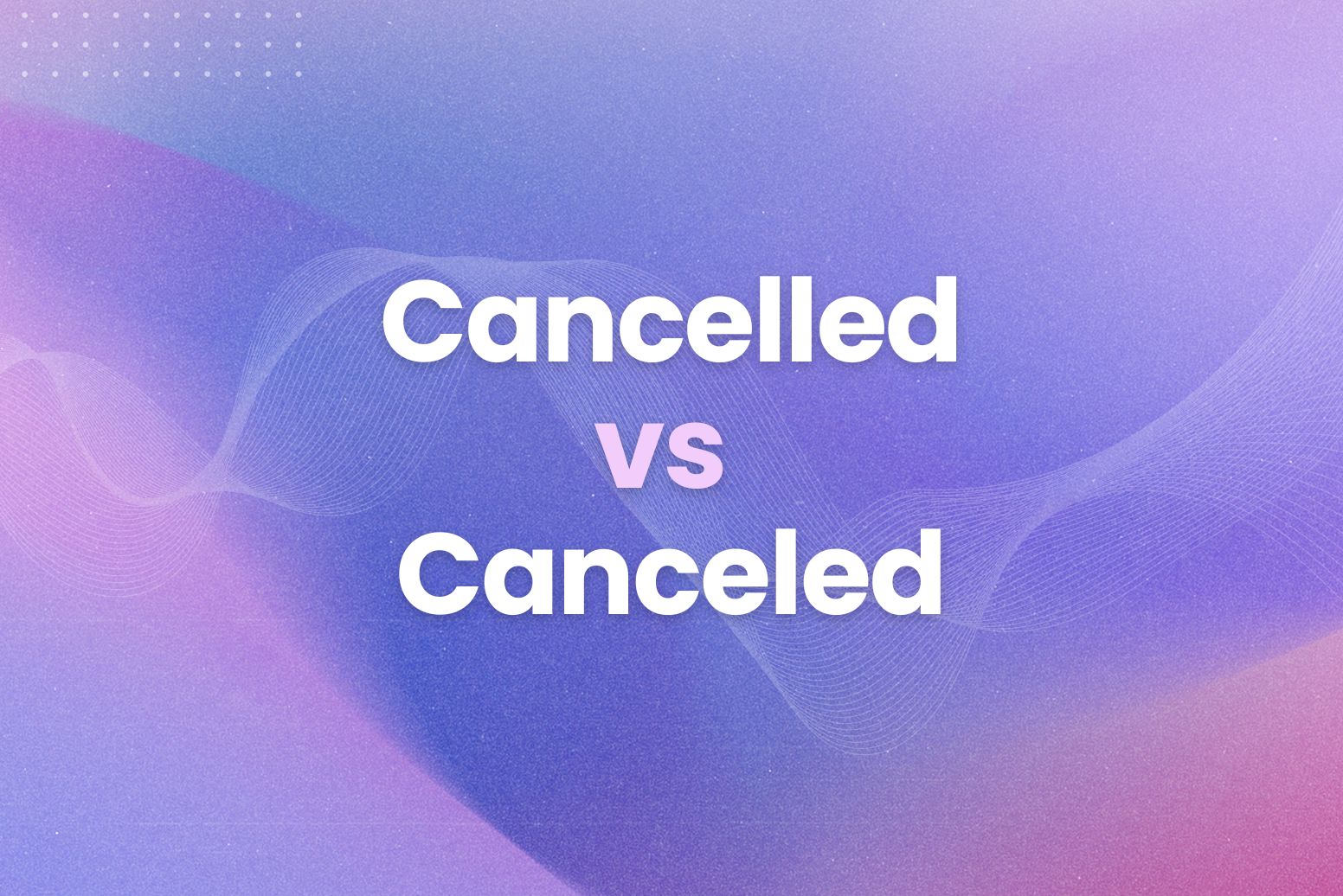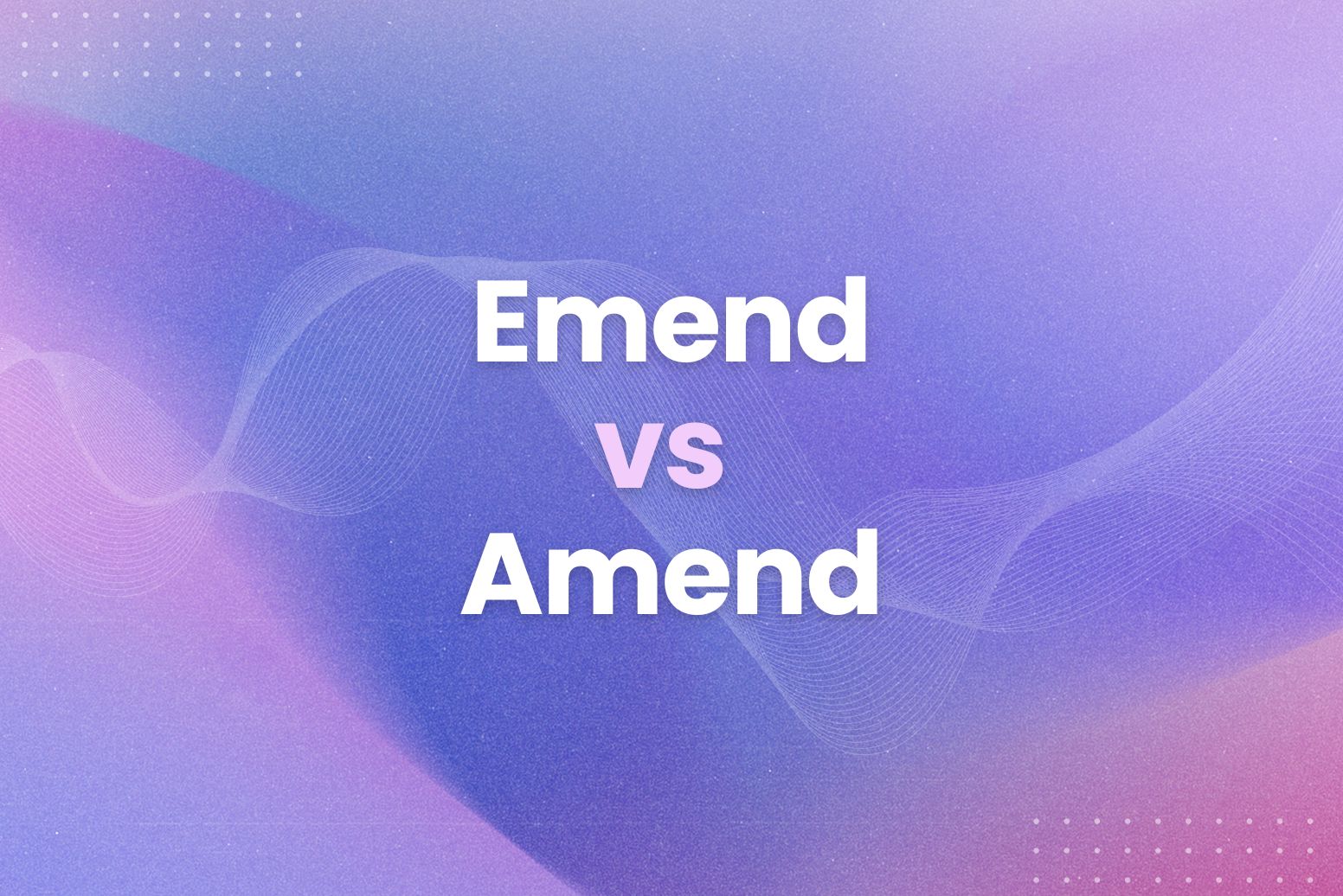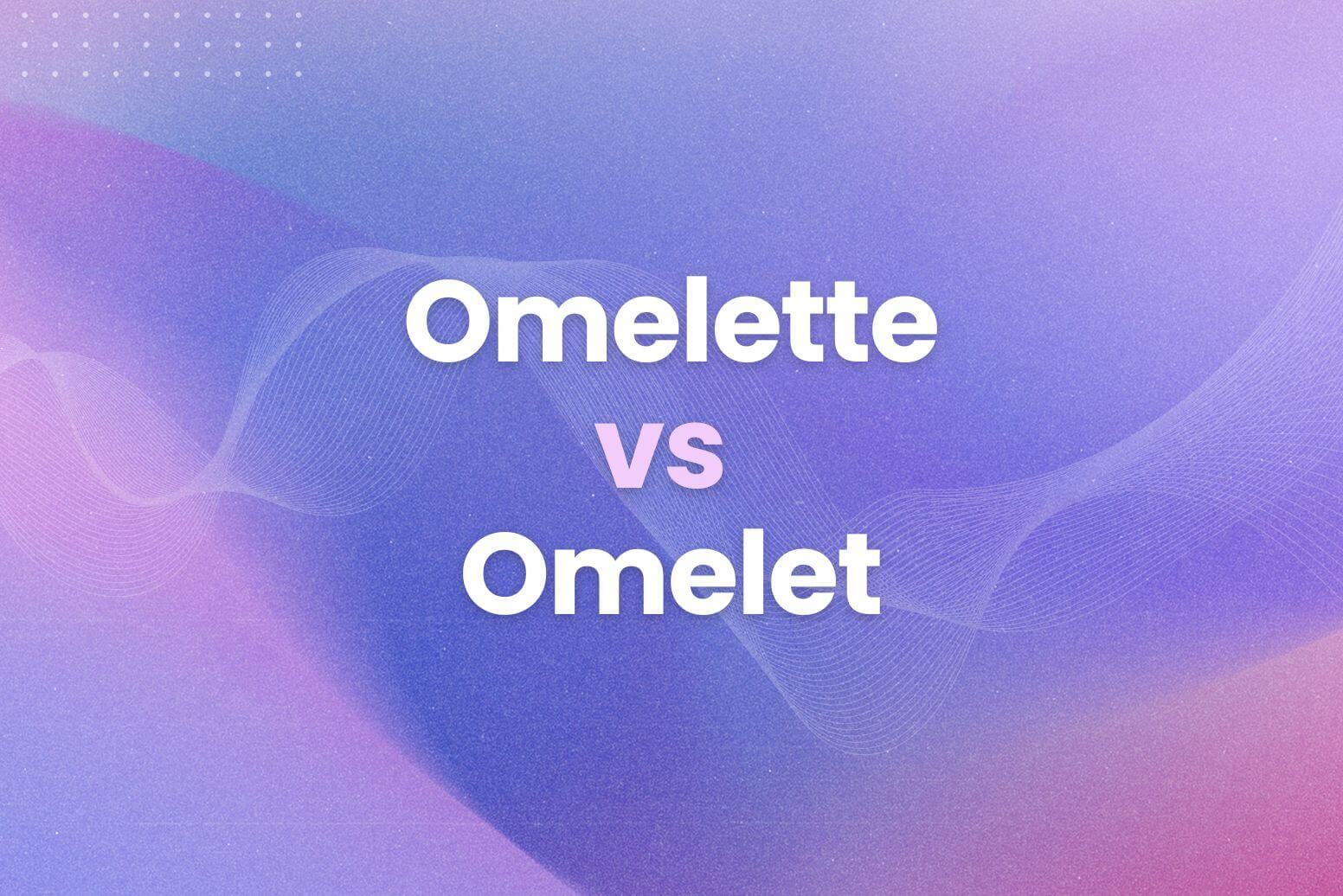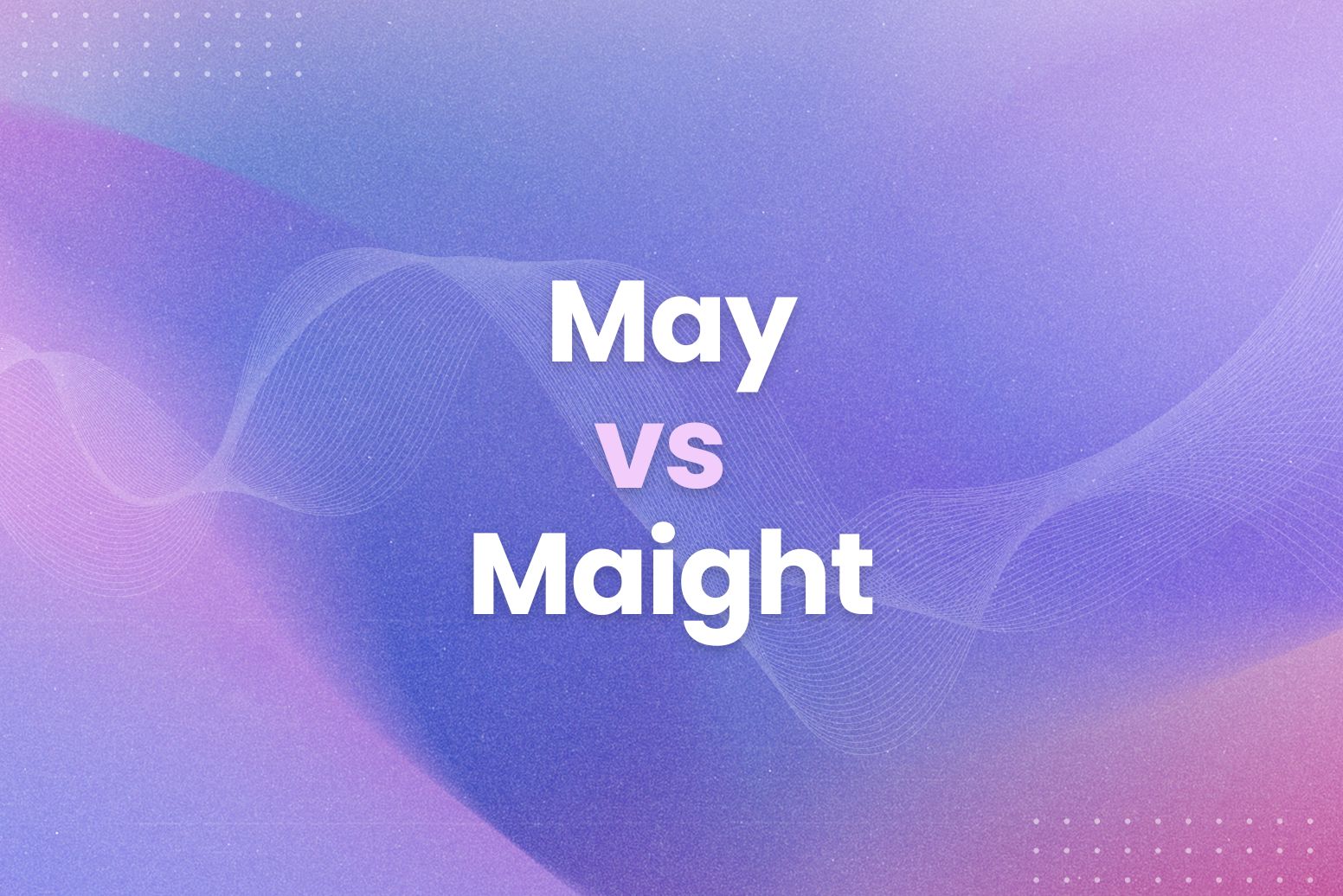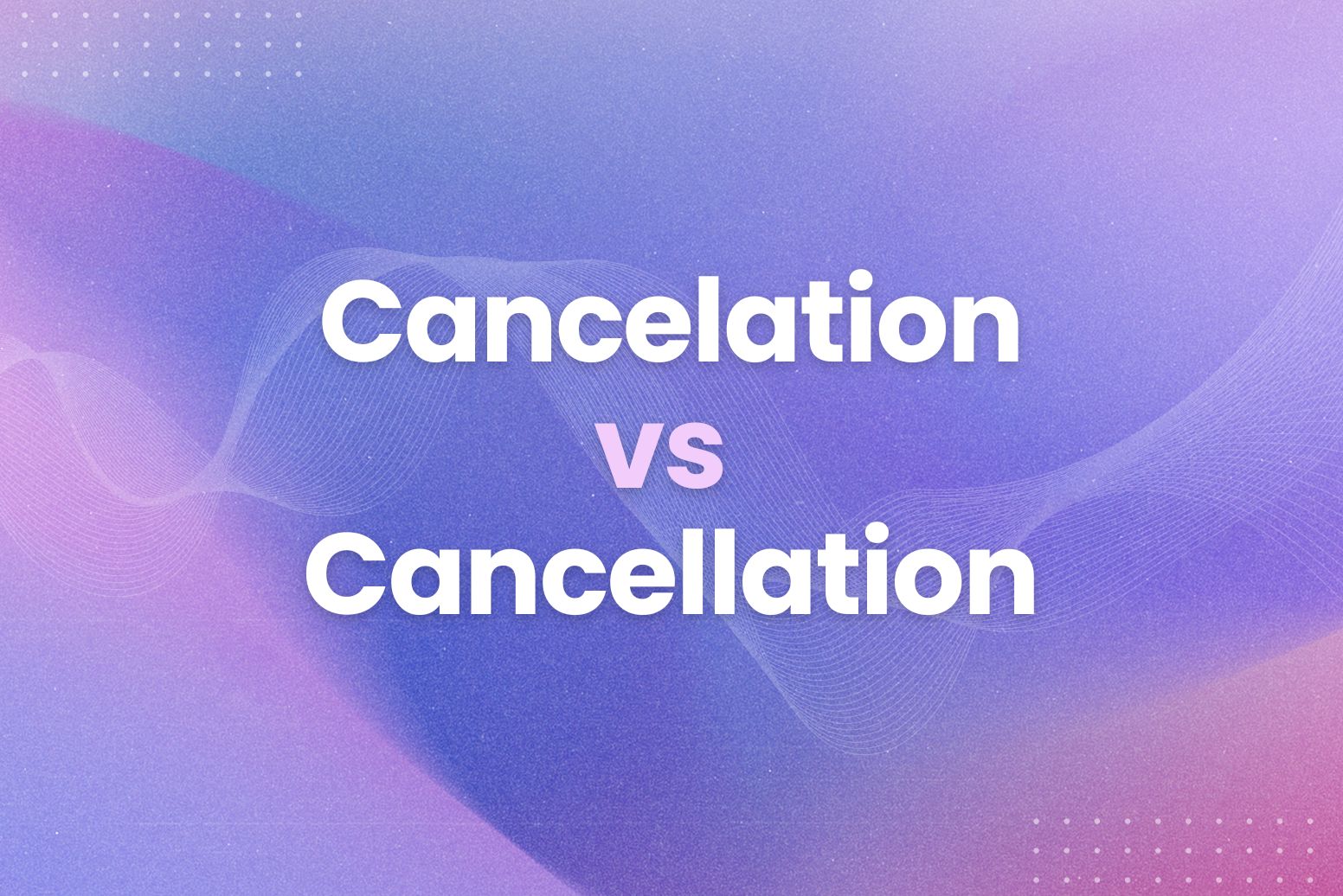Ever stared at “cancelled” and “canceled,” wondering which is actually correct? This simple spelling difference trips up even seasoned writers. It’s a common grammar gotcha. So, which is it: one “L” or two? This post will clear it all up. We’ll break down the difference, and you’ll never second-guess yourself again.
Grammar matters, especially in professional writing. As a result, using the right spelling makes you look polished. Moreover, it boosts your credibility. For instance, using correct spelling in your resume or cover letter can make a strong first impression. In short, mastering this small detail makes a big difference.
What we’ll cover:
- The British vs. American English spelling difference.
- Easy ways to remember which spelling to use.
The British vs. American English Spelling Difference
The difference between “cancelled” and “canceled” comes down to a simple matter of location: British English uses the double “L,” while American English prefers the single “L.” That is to say, if you’re writing for a UK audience, “cancelled” is correct. On the other hand, if your audience is primarily in the US, “canceled” is the way to go.
This difference isn’t unique to “cancel.” Similarly, other words ending in “-el” follow this pattern. For example, “travel” becomes “travelling” (British) and “traveling” (American). In short, the extra “L” is a common marker of British spelling.
Why the difference? Firstly, Noah Webster, the American lexicographer, pushed for simplified spellings in his dictionaries. Secondly, he aimed to create a distinct American identity. Consequently, many words lost their extra letters.
- British English: cancelled, travelling, labelled
- American English: canceled, traveling, labeled
This distinction matters. For instance, using British spelling in an American publication can look unprofessional. Likewise, using American spelling in a British publication can be jarring. Therefore, knowing your audience is key.
Why It Matters At All
So, why does this one-letter difference even matter? It’s more than just a grammar quirk. It’s about clarity, professionalism, and reaching your intended audience. In other words, it’s about good communication.
Firstly, consistent spelling improves readability. For instance, imagine reading a document that switches between “cancelled” and “canceled” randomly. It’s distracting. It breaks the flow. As a result, you’ll lose your message.
Secondly, correct spelling enhances your credibility. Above all, it shows attention to detail. Consequently, it builds trust with your readers. On the other hand, inconsistent or incorrect spelling can make you look sloppy. That is to say, it can damage your reputation.
Moreover, if you’re writing for a specific region, using the correct spelling shows respect for that region’s linguistic conventions. For example, using American spelling in a British publication could be insensitive. Therefore, it’s important to be mindful of your audience.
- Clarity: Consistent spelling makes your writing easier to read.
- Credibility: Correct spelling builds trust and authority.
- Audience: Using the right spelling shows respect for regional differences.
This is where Arvin can really help. Arvin, our AI-powered browser extension, uses GPT-4 to instantly check your grammar and spelling on any webpage. It can even detect these subtle British/American English differences. So, if you’re unsure which spelling to use, simply ask Arvin. It’s a simple solution.
Easy Ways to Remember Which Spelling to Use
Remembering whether to use “cancelled” or “canceled” doesn’t have to be a headache. We have a few simple tricks to make it stick. Firstly, think about location. As we’ve discussed, British English uses the double “L.” American English uses the single “L.” In other words, location is your key.
Here are a couple of memory aids:
- A is for America, A is for one L: This simple association can help you remember that American English uses one “L” in “canceled.”
- British is Bigger (with two Ls): This uses alliteration and the idea of Britain being historically “bigger” to remember the extra “L.” It’s a bit of a stretch, but it works for some.
Another helpful tip: think about the base word, “cancel.” It has one “L.” Consequently, the American spelling keeps that single “L.” On the other hand, British English often doubles the final consonant when adding suffixes like “-ed” or “-ing.” For example, “travel” becomes “travelling.”
Ready to Nail Your Grammar Every Time with Arvin?
We’ve covered the difference between “cancelled” and “canceled,” from its origins in British and American English to simple ways to remember which spelling to use. This seemingly small detail can have a big impact on your writing. So, it’s worth getting right.
Key takeaways on the cancelled or canceled difference:
- British English uses “cancelled” (two Ls).
- American English uses “canceled” (one L).
- Memory tricks and tools can make remembering easier.
- Knowing your audience is key.
Now, you can take your grammar game to the next level with Arvin. Arvin checks your spelling and grammar on any webpage, including catching those tricky British/American English differences. It’s like having a personal editor always ready to assist. So, stop second-guessing yourself and let Arvin polish your writing and make it professional.
FAQs on Cancelled or Canceled
Which is correct: canceled or cancelled?
It depends on where your audience is located. “Canceled” is the standard American English spelling. “Cancelled” is the standard British English spelling. Therefore, both are “correct” within their respective contexts.
Is it cancelled or canceled in the UK?
In the UK, the correct spelling is “cancelled” with two Ls. This is consistent with other words ending in “-el” where British English doubles the “L” when adding suffixes.
Is it cancelled or canceled in Australia?
Australia generally follows British English conventions. Therefore, “cancelled” with two Ls is the preferred spelling in Australian English.
Is it cancelled or canceled in Canada?
Canadian English uses both spellings. However, “cancelled” (with two Ls) is generally more common, aligning more closely with British English usage.

